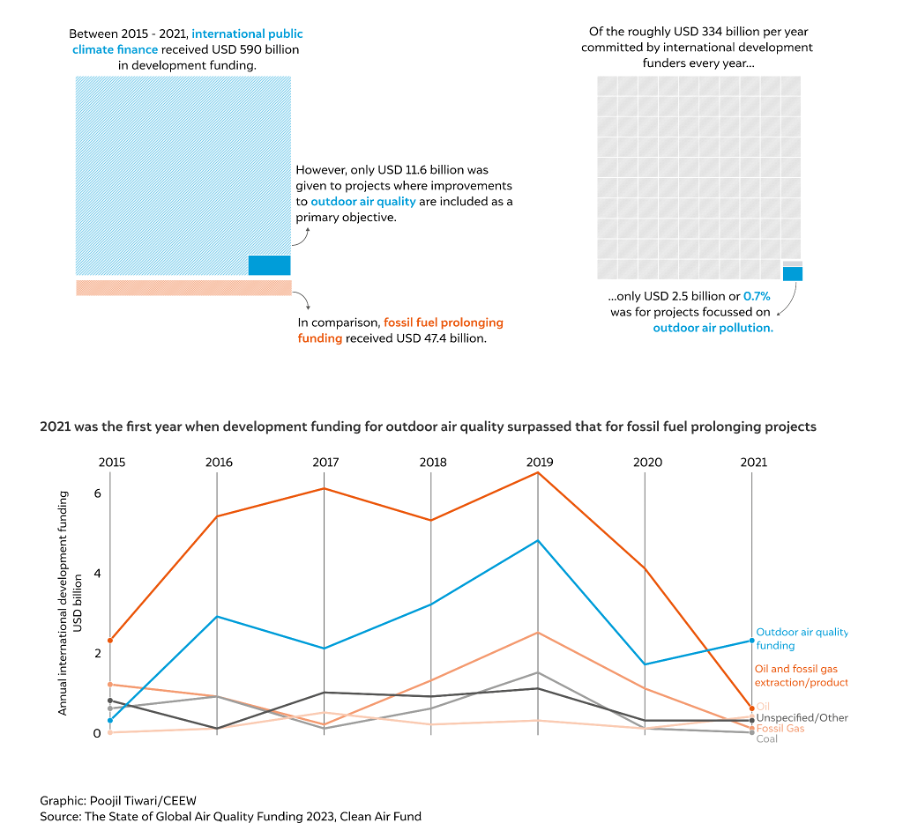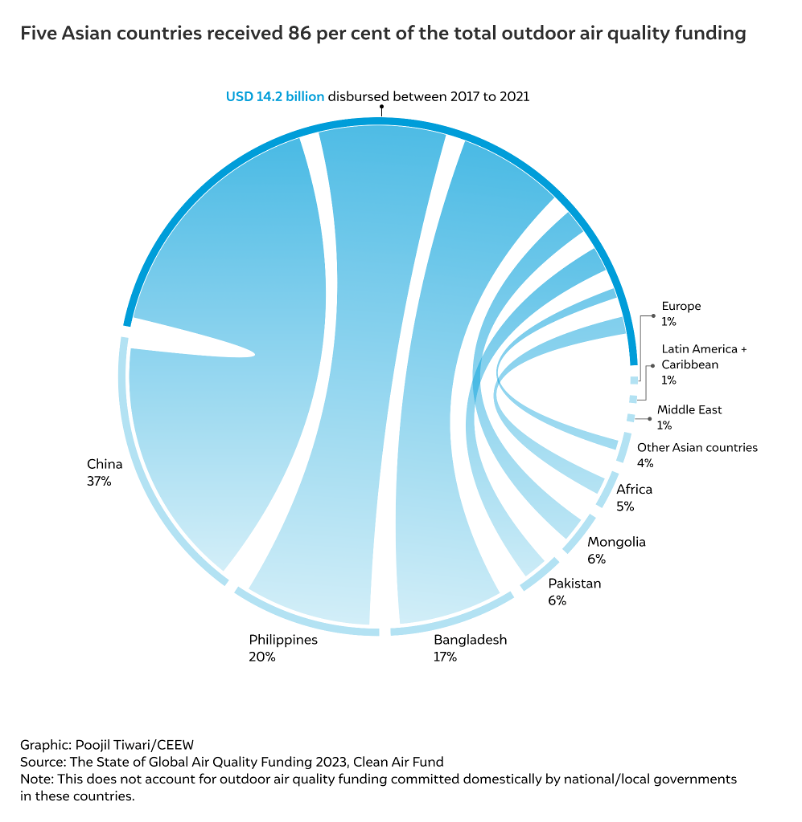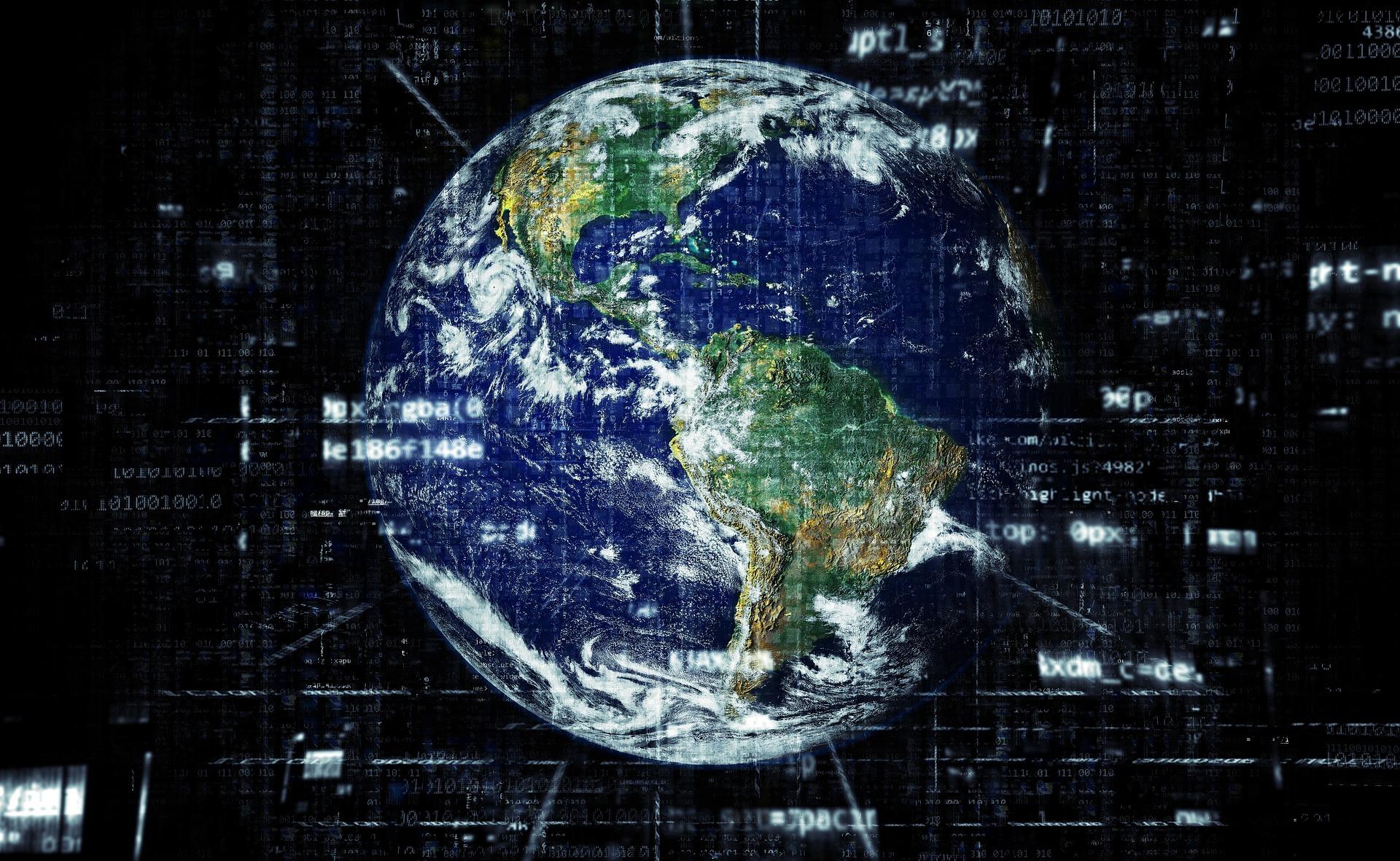The benefits of clean air extend well beyond the environment; it is also key to human health.
- Dirty skies continue to dominate headlines, with the annual death toll due to outdoor air pollution now at 8 million people worldwide.
- Air pollution has well-documented adverse effects on health, but the issue of clean air often falls through the cracks of global negotiations.
- The newly-launched Our Common Air global commission outlines four steps that will be key to to accelerate collective action for clean air.
There is no dearth of headlines on air pollution from Dubai to Delhi to DC. And every year they get starker. At COP28, the first ‘Health Day’ was ironically marked by the Dubai skyline being covered by smog, and the publication of the latest report giving us the annual death toll from outdoor air pollution which now stands at more than 8 million people worldwide each year.
There is mounting scientific evidence about the impact of pollution. According to the World Health Organization, there are more than 70,000 scientific papers which show that air pollution adversely affects our health.
For people who face these health implications – from persistent coughs to lung cancer to strokes to dementia – the crisis is clear. We urgently need clean air. But for the rest of us, when we can’t visibly see the pollution, it’s easy to forget these headlines, and it’s easy to let these big numbers wash over us.
Despite COP28 Health Day, this critical issue falls through the ‘cracks’ of international negotiations. Most of the sources of both the climate crisis and air pollution are similar – emissions. Yet dirty air does not get the concerted international efforts it needs for the issue to be addressed.
This is why at COP28 we launched Our Common Air, a global commission to accelerate collective action for clean air. We believe progress is contingent on four important steps, all underpinned by one key fact – that clean air is key to human development and economic growth.
1. Make the economic case for clean air
Cleaner air improves economic outcomes: it reduces health system costs, vastly improves productivity and has a disproportionate impact on certain sectors. To be specific, the global cost of health damages associated with exposure to air pollution costs an estimated $8.1 trillion, according to a World Bank report.
Further, we will lose 3.8 billion working days annually to air pollution by 2060 if solutions are not found or known actions are not taken. Not surprisingly, the effects of air pollution are disproportionately felt by low- and middle-income countries.
A report by Dalberg Advisors, in partnership with the Clean Air Fund, Blue Sky Analytics, and the Confederation of Indian Industry, showed that air pollution costs Indian businesses $95 billion annually.
Improvements in air quality ensure fewer working days are lost due to sickness, and mitigate the cognitive impairments that otherwise lead to poor performance in schools. It also increases crop yields and, hence, food security. Other benefits include higher efficiency from solar power infrastructure and increase in tourism revenues.
2. Reform and scale finance available for cleaning the air
The evidence is clear — financing clean air is an investment in development. But the recent State of Global Air Quality Funding report finds that only 1% of international development funding and 2% of international public climate finance tackle outdoor air pollution.
The funding that exists is not evenly distributed. African countries received only 5% of the funding available, despite having five of the top 10 most polluted countries in the world per head of population; 86% of the funding went to just five Asian countries.

Moreover, most of that support (92%) came as loans in already debt-ridden countries. Developing economies especially need accessible, de-risked, concessional funding to mitigate pollution at its source, but few receive it. And never at the scale needed. Investing in clean air is investing in climate action — it reduces emissions and improves economic outcomes, for both businesses and people.

3. Create a network of institutions to arrive at solutions
The Our Common Air initiative aims to create a network of institutions, especially in the Global South, to develop the capacity for locally relevant micro- and macroeconomic analysis of air pollution and context-specific ways to tackle it. It will be designed as a solutions network for the benefit of policy-makers, businesses, citizens and civil society.
4. Monitor progress in a standardized manner
Behind the headlines and big numbers on air pollution, there is a need to ensure regular tracking and review in a manner that is standardized and comparable across geographies. Timely actions need accountability and monitoring.
For instance, a study by the Council on Energy, Environment and Water (CEEW) shows the importance of accurate forecasting of sources contributing to air pollution in New Delhi, so that responses are measured and timely. When policies rely on regular data collection, regulators and administrators can follow a science-driven plan to mitigate pollution rather than have to respond with patchwork reactions when smog descends across city skylines.
Clean air key to sustainable human development
Countries and negotiators finally understand the need to champion health at the same time as climate action, but the world needs a credible architecture to monitor responses, measure impacts, and accordingly design further solutions and additional resources to support geographies and jurisdictions seeking to combat air pollution.
In the face of soaring statistics and overlooked urgency, the reality of air pollution becomes strikingly personal. The crisis is undeniably present in every cough, especially in poorer communities.
It’s a stark reminder that clean air isn’t just a matter of well-being; it’s a linchpin for sustainable human development. The stakes are high, the toll is personal, the benefits are economy-wide and beyond borders — and the time to clear the air is now.
Dr Arunabha Ghosh is Founder-CEO of Council on Energy, Environment and Water (CEEW), and Ms Jane Burston is Founder and CEO of Clean Air Fund (CAF). They are co-convenors and Commissioners of Our Common Air, a global commission on air quality. They are also members of the Global Future Council on Clean Air. Views are personal.
Image: Unsplash/Chandan Chaurasia
By: Arunabha Ghosh (Chief Executive Officer, Council on Energy, Environment and Water (CEEW))
and Jane Burston (Chief Executive Officer, Clean Air Fund)
Originally published at: World Economic Forum










